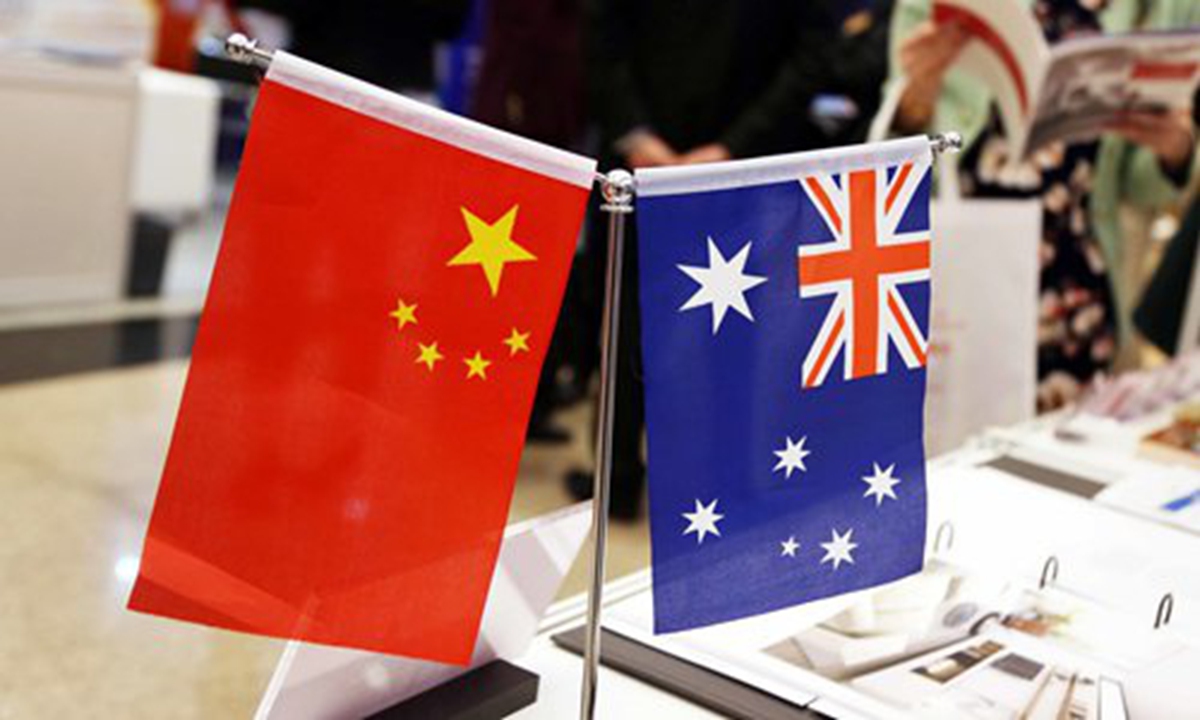Huawei job cuts may signal layoff surge in Australia
Source: Global Times Published: 2020/9/22 21:54:15

File photo
Chinese telecommunications giant Huawei will reportedly continue to cut jobs and investment in its Australian business, a development widely seen as the result of the souring ties between China and Australia.A Tuesday report from the Australian Financial Review, citing Huawei's chief corporate affairs officer Jeremy Mitchell, said that the company would slash local staff numbers from 1,200 to fewer than 200 by next year, and its local investment would also be reduced by more than $100 million.
As the global economy has taken a hit from the coronavirus pandemic this year, it is not uncommon to see multinationals cutting staff around the world. But the layoffs at Huawei's Australian operation may be still noteworthy, because it may signal that a wave of job cuts by Chinese companies in Australia is about to come.
Huawei has been at the center of the US-China technology divide, and every move is now under the spotlight. Thus, the high proportion of layoffs could serve as a bellwether for all Chinese companies in Australia, given the ominous political bilateral atmosphere.
It is conceivable that many Chinese companies in Australia that are not so high-profile as Huawei will slash staff in the near future, even though each company's story may be different. Over the years, Chinese companies attached great importance to the localization approach when investing in Australia, employing as many local employees as possible. Now that geopolitical tensions between China and Australia have created a challenging situation in the Australian market, while the local economy is being battered by the coronavirus, many of them will inevitably choose to scale back local operations to cut costs.
To make things worse, costing cutting at Chinese companies in Australia may be only part of the wave of local job losses. Recent days have also seen intensive news coverage of layoffs by some Australian companies and institutions, most of which have ties to the Chinese market thanks to the country's economic heavy reliance on China. For instance, Australian health supplements company Blackmore announced last month plans to cut about 10 percent of its workforce after reporting a 66-percent slump in full-year profit. In 2019, Chinese demand accounted for 24 percent of the retail sales of Australian vitamin and dietary supplements. Meanwhile, local media reports said Australian universities have considered job cuts as their fee income from Chinese students has been severely affected by travel restrictions.
Moreover, the political tensions between China and Australia have cast a shadow over bilateral trade relations, which will cost jobs along the supply chains on both sides. If the situation continues, the unemployment picture could be even grimmer next year. With substantial job losses in an industry chain that is subject to some devastating pressures, it won't be easy for any government to create a significant number of new positions in the short term given the global economic fallout from the pandemic.
Australia used to share close economic links with China, but the Morrison government may not appreciate this until mass layoffs really come.
RELATED ARTICLES:
- Update: Australia's a small market and has never been Huawei's particular focus: company executive
- 'Losing access' to Swedish space facility in Australia hardly affects Chinese space programs: insiders
- Australian intelligence community is manipulating its China policy in the shadows following the US steps
Posted in: GT VOICE